11 start with I start with I
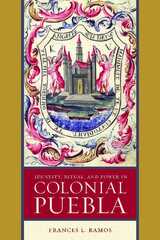
With Ramos as a guide, we are not only dazzled by the trappings of power—the silk canopies, brocaded robes, and exploding fireworks—but are also witnesses to the public spectacles through which municipal councilmen consolidated local and imperial rule. By sponsoring a wide variety of carefully choreographed rituals, the municipal council made locals into audience, participants, and judges of the city’s tumultuous political life. Public rituals encouraged residents to identify with the Roman Catholic Church, their respective corporations, the Spanish Empire, and their city, but also provided arenas where individuals and groups could vie for power.
As Ramos portrays the royal oath ceremonies, funerary rites, feast-day celebrations, viceregal entrance ceremonies, and Holy Week processions, we have to wonder who paid for these elaborate rituals—and why. Ramos discovers and decodes the intense debates over expenditures for public rituals and finds them to be a central part of ongoing efforts of councilmen to negotiate political relationships. Even with the Spanish Crown’s increasing disapproval of costly public ritual and a worsening economy, Puebla’s councilmen consistently defied all attempts to diminish their importance.
Ramos innovatively employs a wealth of source materials, including council minutes, judicial cases, official correspondence, and printed sermons, to illustrate how public rituals became pivotal in the shaping of Puebla’s complex political culture.
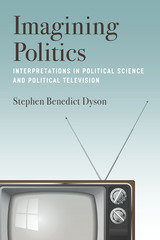
Imagining Politics critically examines two interpretations of government. The first comes from pop culture fictions about politics, the second from academic political science. Stephen Benedict Dyson argues that televised political fictions and political science theories are attempts at meaning-making, reflecting and shaping how a society thinks about its politics.
By taking fiction seriously, and by arguing that political science theory is homologous to fiction, the book offers a fresh perspective on both, using fictions such as The West Wing, House of Cards, Borgen, Black Mirror, and Scandal to challenge the assumptions that construct the discipline of political science itself.
Imagining Politics is also about a political moment in the West. Two great political shocks—Brexit and the election of Donald Trump—are set in a new context here. Dyson traces how Brexit and Trump campaigned against our image of politics as usual, and won.
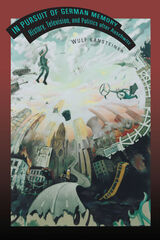
The collective memories of Nazism that developed in postwar Germany have helped define a new paradigm of memory politics. From Europe to South Africa and from Latin America to Iraq, scholars have studied the German case to learn how to overcome internal division and regain international recognition.
In Pursuit of German Memory: History, Television, and Politics after Auschwitz examines three arenas of German memory politics—professional historiography, national politics, and national public television—that have played key roles in the reinvention of the Nazi past in the last sixty years. Wulf Kansteiner shows that the interpretations of the past proposed by historians, politicians, and television producers reflect political and generational divisions and an extraordinary concern for Germany's image abroad. At the same time, each of these theaters of memory has developed its own dynamics and formats of historical reflection.
Kansteiner’s analysis of the German scene reveals a complex social geography of collective memory. In Pursuit of German Memory underscores the fact that German memories of Nazism, like many other collective memories, combine two seemingly contradictory qualities: They are highly mediated and part of a global exchange of images and story fragments but, at the same time, they can be reproduced only locally, in narrowly circumscribed networks of communication.
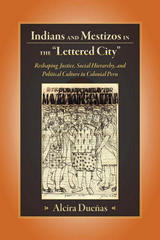
Scholars have long assumed that Spanish rule remained largely undisputed in Peru between the 1570s and 1780s, but educated elite Indians and mestizos challenged the legitimacy of Spanish rule, criticized colonial injustice and exclusion, and articulated the ideas that would later be embraced in the Great Rebellion in 1781. Their movement extended across the Atlantic as the scholars visited the seat of the Spanish empire to negotiate with the king and his advisors for social reform, lobbied diverse networks of supporters in Madrid and Peru, and struggled for admission to religious orders, schools and universities, and positions in ecclesiastic and civil administration.
Indians and Mestizos in the "Lettered City" explores how scholars contributed to social change and transformation of colonial culture through legal, cultural, and political activism, and how, ultimately, their significant colonial critiques and campaigns redefined colonial public life and discourse. It will be of interest to scholars and students of colonial history, colonial literature, Hispanic studies, and Latin American studies.
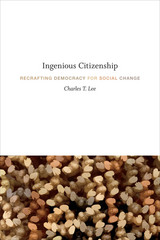

Since 1979 China’s leaders have introduced economic and political reforms that have lessened the state’s hold over the lives of ordinary citizens. By examining the growth in individual rights, the public sphere, democratic processes, and pluralization, the author seeks to answer questions concerning the relevance of liberal democratic ideas for China and the relationship between a democratic political culture and a democratic political system. The author also looks at the contradictory impulses and negative consequences for democracy generated by economic liberalism.
Unresolved issues concerning the relationships among culture, democracy, and socioeconomic development are at the heart of the analysis. Nonideological criteria are used to assess the success of the Chinese approach to building a fair, just, and decent society.
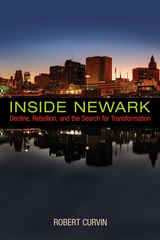
Based on historical records and revealing interviews with over one hundred residents and officials, Inside Newark traces Newark’s history from the 1950s, when the city was a thriving industrial center, to the era of Mayor Cory Booker. Along the way, Curvin covers the disturbances of July 1967, called a riot by the media and a rebellion by residents; the administration of Kenneth Gibson, the first black mayor of a large northeastern city; and the era of Sharpe James, who was found guilty of corruption. Curvin examines damaging housing and mortgage policies, the state takeover of the failing school system, the persistence of corruption and patronage, Newark’s shifting ethnic and racial composition, positive developments in housing and business complexes, and the reign of ambitious mayor Cory Booker.
Inside Newark reveals a central weakness that continues to plague Newark—that throughout this history, elected officials have not risen to the challenges they have faced. Curvin calls on those in positions of influence to work for the social and economic improvement of all groups and concludes with suggestions for change, focusing on education reform, civic participation, financial management, partnerships with agencies and business, improving Newark’s City Council, and limiting the term of the mayor. If Newark’s leadership can encompass these changes, Newark will have a chance at a true turnaround.
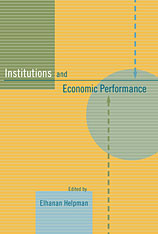
Institutions and Economic Performance explores the question of why income per capita varies so greatly across countries. Even taking into account disparities in resources, including physical and human capital, large economic discrepancies remain across countries. Why are some societies but not others able to encourage investments in places, people, and productivity?
The answer, the book argues, lies to a large extent in institutional differences across societies. Such institutions are wide-ranging and include formal constitutional arrangements, the role of economic and political elites, informal institutions that promote investment and knowledge transfer, and others. Two core themes run through the contributors’ essays. First, what constraints do institutions place on the power of the executive to prevent it from extorting the investments and effort of other people and institutions? Second, when are productive institutions self-enforcing?
Institutions and Economic Performance is unique in its melding of economics, political science, history, and sociology to address its central question.
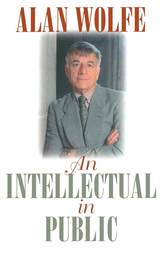
"The question of the public intellectual is very much in the air again," writes Alan Wolfe. As one of our eminent social commentators, Wolfe should know; he's been writing, with fierce intellectual independence, about American public and private life since the 1960s.
In this new collection of essays spanning seven years of contributions to The New Republic, The New Yorker, Atlantic Monthly, and other prominent publications, Wolfe displays the courage necessary to write honestly—yet free of ideology, cant, and piety—about the things Americans take very seriously.
Wolfe thinks big; indeed, the essays in An Intellectual in Public confront many of the most controversial issues of our time: country, God, race, sex, material consumption, and left and right. Beginning and ending the book are original essays describing the public intellectual's role, and how Wolfe believes that role ought to be filled.
An Intellectual in Public is not only a demonstration of Wolfe's pointed analytical skills but a testament to his belief that "severely ideological thinking" is inappropriate for some of our most difficult problems, and that "neither the right nor the left can speak for all of America."
Alan Wolfe is the director of the Boisi Center for Religion and American Public Life and also Professor of Political Science at Boston College. He is the author of over a dozen books, including One Nation After All: What Middle Class Americans Really Think About: God, Country, Family, Racism, Welfare, Immigration, Homosexuality, Work, the Right, the Left and Each Other.
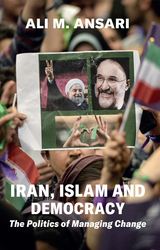
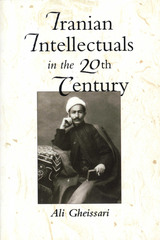
Since the middle of the nineteenth century, Iranian intellectuals have been preoccupied by issues of political and social reform, Iran's relation with the modern West, and autocracy, or arbitrary rule. Drawing from a close reading of a broad array of primary sources, this book offers a thematic account of the Iranian intelligentsia from the Constitutional movement of 1905 to the post-1979 revolution.
Ali Gheissari shows how in Iran, as in many other countries, intellectuals have been the prime mediators between the forces of tradition and modernity and have contributed significantly to the formation of the modern Iranian self image. His analysis of intellectuals' response to a number of fundamental questions, such as nationalism, identity, and the relation between Islam and modern politics, sheds new light on the factors that led to the Iranian Revolution—the twentieth century's first major departure from Western political ideals—and helps explain the complexities surrounding the reception of Western ideologies in the Middle East.
READERS
Browse our collection.
PUBLISHERS
See BiblioVault's publisher services.
STUDENT SERVICES
Files for college accessibility offices.
UChicago Accessibility Resources
home | accessibility | search | about | contact us
BiblioVault ® 2001 - 2024
The University of Chicago Press









